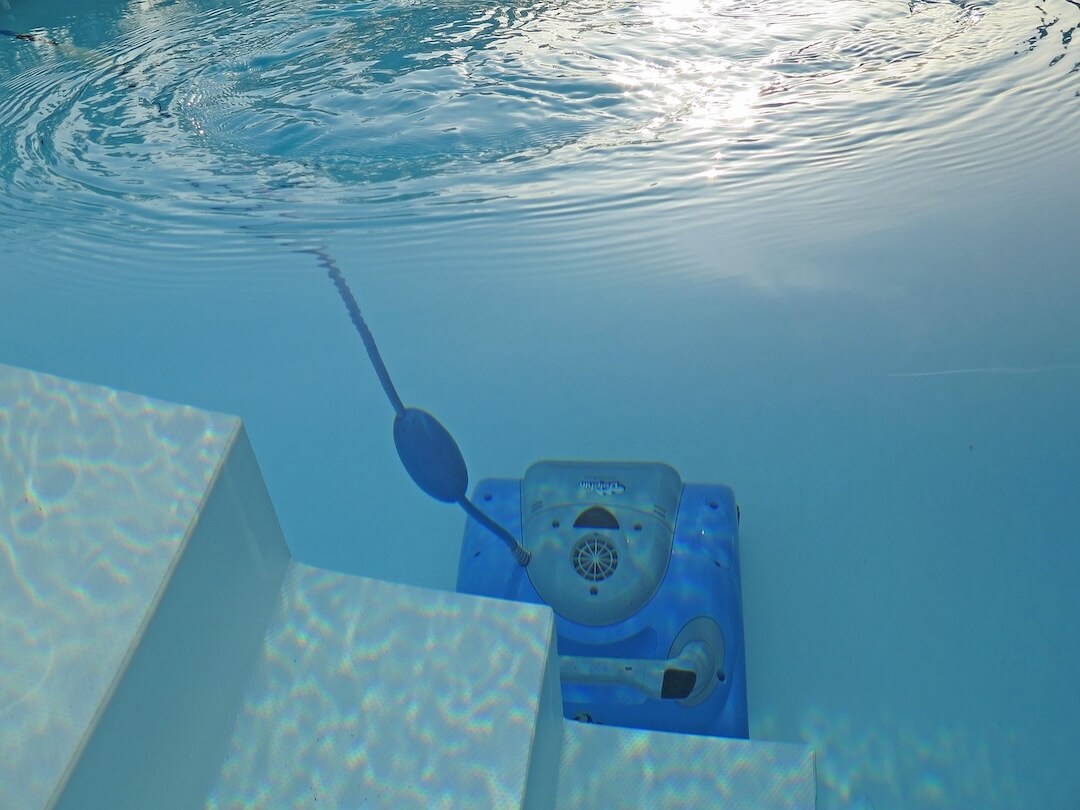Handling Pool Water Hardness Issues

Handling Pool Water Hardness Issues
Maintaining a pristine pool in Fort Lauderdale requires more than just regular cleaning and chemical balancing; it also involves addressing a common challenge—water hardness. Hard water can cause a range of problems that affect the health of your pool, the longevity of your equipment, and the overall swimming experience. Whether you're a new pool owner or have been managing a pool in Fort Lauderdale for years, understanding how water hardness impacts your pool and knowing effective ways to treat it are crucial for optimal pool maintenance.
What Is Water Hardness and Why Does It Matter?
Water hardness refers to the concentration of dissolved minerals, primarily calcium and magnesium, in your pool water. In Fort Lauderdale, where the local water supply often contains higher mineral content, hard water can pose significant issues if not properly managed. When calcium levels are too high, the water becomes "hard," leading to scale buildup on pool surfaces, plumbing, and equipment.
Hard water causes mineral deposits that can form white, chalky stains on tiles, liners, and pool accessories. Over time, these deposits can reduce water circulation efficiency and strain your pool’s filtration system. Moreover, excessive calcium hardness can interfere with the effectiveness of sanitizers like chlorine, making it harder to keep your pool water clean and safe.
Identifying Water Hardness Levels in Fort Lauderdale
Knowing the calcium hardness levels in your pool is the first step to proper treatment. Pool water testing kits are readily available in Fort Lauderdale, and professional testing services are offered by our local pool maintenance companies. Ideally, calcium hardness should be maintained between 200-400 ppm (parts per million) for most residential pools in Florida. Levels below 200 ppm are considered "soft water," which can cause corrosive effects, while levels above 400 ppm are classified as "hard water," increasing the risk of scale formation.
Regular testing—at least once a month—is essential to monitor these levels, especially during seasonal changes or after heavy rainfalls that can alter water chemistry in Fort Lauderdale.
The Impact of Hard Water on Your Pool in Florida
In the warm climate of Fort Lauderdale, high temperatures accelerate chemical reactions and mineral deposits. Hard water can lead to numerous problems:
- Scale buildup on pool surfaces, filters, heaters, and pumps, which reduces efficiency and may cause costly repairs.
- Cloudy or murky water due to mineral deposits interfering with filtration.
- Reduced lifespan of pool equipment because of mineral corrosion.
- Difficulty maintaining pH balance, as calcium tends to raise pH levels, leading to cloudy water and potential algae growth.
- Staining and scaling on pool tiles and liners, diminishing the aesthetic appeal of your pool.
Thus, properly managing water hardness is vital for preserving your pool’s integrity and ensuring a safe, inviting swimming environment in Fort Lauderdale.
How to Test Water Hardness in Fort Lauderdale
Regular testing can be performed with easy-to-use test strips or liquid test kits available at local pool supply stores in Fort Lauderdale. For more precise readings, professional water testing services offered by our reputable Florida pool maintenance companies can analyze your water and provide tailored treatment recommendations. When testing, focus on calcium hardness levels and other parameters like pH, alkalinity, and stabilizer levels to get a comprehensive picture of your pool’s water chemistry.
Solutions for Hard Water Problems in Florida Pools
Managing hard water in Fort Lauderdale involves both preventative and corrective measures. Here are some effective strategies:
1. Use Water Softeners or Conditioners
Installing a pool water softening system can significantly reduce calcium levels. These systems work by removing excess minerals through ion exchange or other filtration methods. For pools with persistent hard water issues, especially in areas with high mineral content in the municipal water supply, professional installation of a softening system tailored to your pool size is recommended.
2. Perform Regular Dilution and Water Replacement
In cases of severe hardness, partially draining your pool and replacing it with softer, properly balanced water can be a quick fix. In Fort Lauderdale, careful water management ensures you don’t over-dilute or introduce additional minerals that could destabilize the water chemistry.
3. Use Calcium Chloride Inhibitors or Sequestrants
Sequestrants are chemical treatments that bind to calcium and other minerals, preventing them from depositing on surfaces and equipment. Regular application of these products helps maintain balanced calcium levels and prevents scale formation, especially crucial during hot Florida summers when evaporation increases mineral concentration.
4. Maintain Proper pH and Alkalinity Levels
High calcium levels often go hand-in-hand with elevated pH and alkalinity. Proper balancing of these parameters makes calcium less likely to precipitate out of solution. Regular testing and adjustment are key, and consulting with our Fort Lauderdale-based pool professionals ensures optimal chemical balance.
5. Install Scale Prevention Devices
Some advanced pool systems incorporate scale prevention technology, such as electronic descalers or magnetic conditioners, which alter mineral behavior in the water, reducing scale buildup without the need for chemical treatments.
Professional Assistance in Fort Lauderdale
Given the complexity of water chemistry and the unique mineral content in Fort Lauderdale’s water supply, partnering with local pool experts is strongly advised. Our professional pool technicians can perform comprehensive water testing, recommend the most effective treatment methods, and provide ongoing maintenance to keep your pool water balanced and free of mineral buildup.
Regular maintenance plans include monitoring calcium hardness, adjusting chemicals accordingly, and inspecting equipment for signs of scale or corrosion. This proactive approach helps prevent costly repairs and preserves your pool’s beauty and functionality.
Preventing Hard Water Issues in the Future
Prevention is always better than cure. Here are some tips for Fort Lauderdale pool owners:
- Test water regularly and maintain proper chemical balance.
- Use water softening or conditioning systems if the municipal supply consistently tests high for minerals.
- Routine cleaning of filters and heaters to prevent mineral deposits.
- Seasonal water adjustments to account for evaporation during Florida’s hot summers, which concentrate minerals.
- Consult our local pool professionals for tailored water chemistry management strategies.
Final Thoughts
Managing pool water hardness in Fort Lauderdale is essential for maintaining a healthy, sparkling pool that enhances your outdoor living experience. By understanding the causes and consequences of hard water, implementing effective treatment solutions, and working with local experts, you can prevent scale buildup, extend the life of your equipment, and enjoy crystal-clear water all year round.
Whether you're dealing with stubborn calcium deposits or simply want to optimize your pool’s chemistry, taking proactive steps now ensures your Fort Lauderdale pool remains a safe haven for relaxation and fun. Contact our trusted local pool service provider today to assess your water quality and develop a customized plan to address your specific water hardness challenges.



